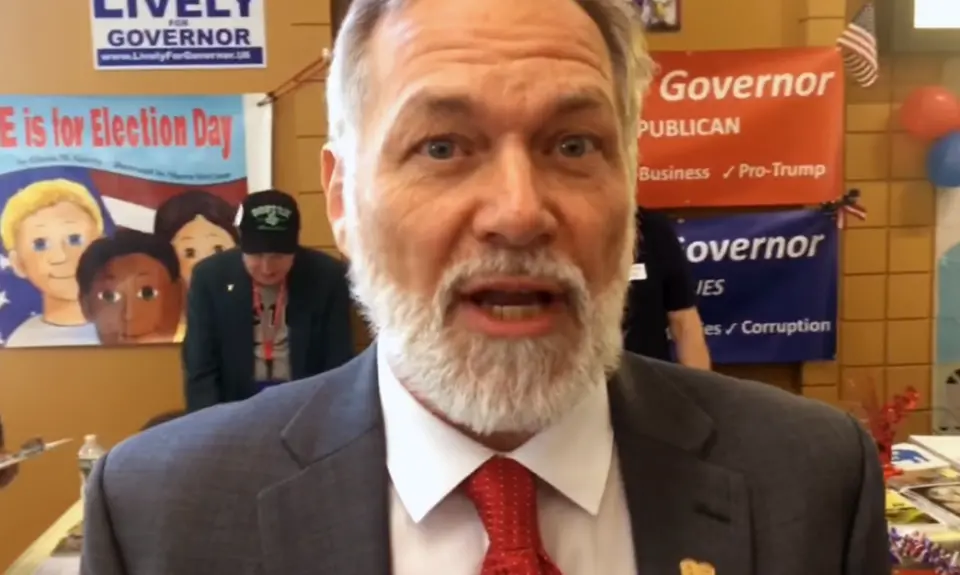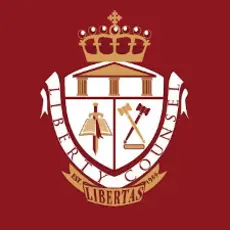Back in 2012, viciously anti-LGBTQ Religious Right activist Scott Lively was sued for his role in whipping up anti-gay hysteria in Uganda, which eventually lead to the passage of a draconian anti-LGBTQ law in the country. In 2017, the case against Lively was dismissed, but his "crackpot bigotry" and his "ludicrously extreme animus against LGBTI people" were denounced by the judge in the case.
Outraged, Lively and his attorneys at the equally anti-LGBTQ Religious Right legal group Liberty Counsel appealed the ruling, demanding that the judge's "unnecessary and prejudicial language" be stricken from the record on the grounds that these "defamatory statements [were] both illegal and unbecoming."
Last week, the District Court of Massachusetts dismissed Lively's appeal which, for some reason, Liberty Counsel is painting as a victory:
On Friday, the U.S. Court of Appeals for the First Circuit vindicated the name of Pastor Scott Lively, in an appeal Liberty Counsel filed in June 2017. Lively filed the appeal after winning summary judgment against the foreign LGBT activists, Sexual Minorities of Uganda (SMUG), which had sued Lively in 2012 for sharing his biblical views on homosexuality during three visits to Uganda in 2002 and 2009.
Although Lively’s summary judgment win put an end to SMUG’s attempt to silence him, he filed the appeal to strike the outrageous statements and unnecessary, unsupportable findings made against Lively by U.S. District Judge Michael A. Ponsor in the order delivering the win. The court of appeals’ opinion neutralizes the gratuitous language, making it clear that Judge Ponsor’s statements have no legal effect.
...
With SMUG promising to use Judge Ponsor’s order against Lively in other courts, Lively appealed his win, but only to have stricken Judge Ponsor’s improper and prejudicial statements. The court of appeals made it clear that Judge Ponsor’s statements “lack any binding or preclusive effect,” and “should not be accorded any binding effect in future litigation…”
“The court of appeals has legally cleared Lively’s name, stating unequivocally that Judge Ponsor’s baseless findings and insults have no legal effect whatsoever,” said Horatio Mihet, Liberty Counsel’s Vice President of Legal Affairs and Chief Litigation Counsel. “The decision also thwarts SMUG’s promise to weaponize Judge Ponsor’s attack against Lively, leaving SMUG with what it always deserved from this case, which is nothing,” said Mihet.
The court's decision directly contradicts Liberty Counsel's bold claims of victory, as the court seemed almost incredulous that it was being asked to weigh in on a case in which "although Lively was the prevailing party, he nonetheless appealed" simply because he didn't like some of the things contained in the lower court's ruling.
The court's irritation with Lively's frivolous appeal is evident throughout the decision:
In his most loudly bruited claim of error, Lively beseeches us to purge certain unflattering statements from the district court's dispositive opinion. See, e.g., supra n.1. None of these statements, though, have any bearing on the analytical foundations of the dispositive order or impact the result. The statements are, therefore, dicta and, as such, they lack any binding or preclusive effect. Because they are not "in any sense necessary to the district court's judgment," we lack jurisdiction to entertain Lively's request that we excise them.
...
It follows that a party — like Lively — who has obtained a favorable final judgment may not "seek review of uncongenial findings not essential to the judgment and not binding upon [him] in future litigation." Mathias v. WorldCom Techs., Inc., 535 U.S. 682, 684 (2002) (per curiam); see Elkin v. Metro. Prop. & Cas. Ins. Co. (In re Shkolnikov), 470 F.3d 22, 24 (1st Cir. 2006). A necessary corollary of this proposition is that "a winner cannot appeal a judgment merely because there are passages in the court's opinion that displease him." Abbs v. Sullivan, 963 F.2d 918, 924 (7th Cir. 1992); see Navieros Inter-Americanos, S.A. v. M/V Vasilia Express, 120 F.3d 304, 316 (1st Cir. 1997). Such a praxis stems not only from the language and clear intendment of section 1291 itself, but also from prudential considerations. An appellate court's "resources are not well spent superintending each word a lower court utters en route to a final judgment in the [appellant's] favor." Camreta v. Greene, 563 U.S. 692, 704 (2011). We conclude, therefore, that we lack jurisdiction to entertain Lively's request that we purge certain unflattering comments from the district court's opinion.
...
We lack jurisdiction to entertain Lively's importunings that we purge certain unflattering comments from the district court's opinion. Consequently, this portion of Lively's appeal must be dismissed for want of appellate jurisdiction.
In dismissing his appeal, the court exasperatedly declares that "Lively's embarrassment in the face of the district court's unflattering comments ... cannot suffice to manufacture appellate jurisdiction where none exists," yet somehow Liberty Counsel is trying to spin this obvious and embarrassing defeat as an amazing victory.






